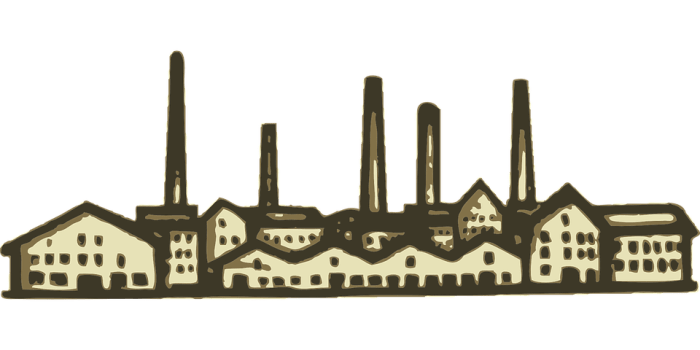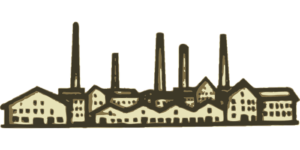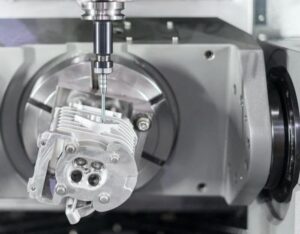
Industrial pipe systems play a crucial role in ensuring the seamless operation of various industries, from manufacturing to oil and gas. These systems are designed to transport fluids, gases, and other materials efficiently, making them integral to maintaining productivity and safety across sectors.
Understanding the different types of industrial pipe systems, their components, and their design considerations is essential for anyone involved in the industry. By delving into the intricacies of these systems, we discover how they contribute significantly to operational efficiency and the overall success of industrial processes.
Introduction to Industrial Pipe Systems
Industrial pipe systems are essential infrastructures that facilitate the transportation of fluids, gases, and solids across various industries. These systems play a crucial role in sectors such as manufacturing, oil and gas, water treatment, and food processing, where operational efficiency and safety are paramount. Their significance cannot be overstated, as they directly influence the productivity and reliability of industrial operations.Different types of industrial pipe systems exist, each designed to meet specific needs and requirements.
For instance, you have the standard piping systems, which include steel, PVC, and copper pipes, and specialized systems, such as those used in high-pressure or high-temperature applications. Effectively designed pipe systems are vital in maintaining operational efficiency, ensuring that resources flow smoothly while minimizing downtime and maintenance costs.
Components of Industrial Pipe Systems
Understanding the components of industrial pipe systems is crucial for anyone involved in their design, installation, or maintenance. Key components include:
- Pipes: The primary conduits for transporting materials, manufactured from various materials like steel or plastic, each chosen for specific properties such as durability and resistance to corrosion.
- Fittings: These are essential for connecting pipes and allowing for directional changes. Common types include elbows, tees, and reducers.
- Valves: Critical for controlling the flow and pressure within the system. They allow for the regulation of fluid movement, providing safety and efficiency.
- Joints: Where pipes connect, these must be secure to prevent leaks and ensure the integrity of the entire system.
The materials used in manufacturing industrial pipes vary significantly in terms of properties. For example, steel pipes are known for their strength and durability, while PVC pipes are lightweight and resistant to corrosion. The choice of material greatly influences the overall performance of the pipe system.
Design Considerations for Industrial Pipe Systems
Effective design principles are fundamental when constructing industrial pipe systems. Several factors influence the design, including:
- Fluid Characteristics: Understanding the type of fluid being transported, including its viscosity, temperature, and corrosiveness, is essential for determining pipe size and material.
- Pressure and Temperature: Systems must be designed to handle the specific pressure and temperature ranges of the application.
- Flow Rate: Accurate calculations of flow rate are necessary for selecting appropriate pipe diameters to avoid bottlenecks or excessive pressure drops.
The selection of materials also plays a critical role in the design process. For instance, corrosive materials may require specialized coatings or the use of stainless steel to prevent degradation.
Installation and Maintenance of Industrial Pipe Systems

Proper installation of industrial pipe systems is crucial for their long-term performance. Key procedures include:
- Preparation: This involves site assessments and ensuring that all components meet specifications before installation.
- Joining Methods: Various techniques such as welding, soldering, or using mechanical fittings are employed based on the material and application.
- Testing: After installation, systems are often pressure-tested to ensure there are no leaks and that they can withstand operational demands.
Routine maintenance is vital to extend the lifespan of pipe systems. A checklist for maintenance includes:
- Inspecting for leaks or signs of wear.
- Regularly checking valves and fittings for proper functionality.
- Monitoring the condition of the pipes, especially those exposed to harsh environmental conditions.
Common issues during installation may include misalignment and improper fitting. Troubleshooting these problems early can save significant time and resources.
Customer Service in Industrial Pipe Systems
Providing excellent customer service in the industrial pipe sector is fundamental for building lasting relationships. Best practices include:
- Understanding client needs through effective communication and consultation.
- Offering tailored solutions that address specific challenges faced by clients.
- Ensuring timely responses to inquiries and issues that arise.
After-sales support also plays a vital role; it assures clients that help is available should any issues arise post-installation.
Entrepreneurialism in the Pipe Systems Sector
Starting a business in the industrial pipe systems market can be lucrative, but it requires careful planning and strategy. Key insights include:
- Market Research: Understanding the competitive landscape and identifying gaps in the market can provide a strong foundation for a new venture.
- Innovative Business Models: Consider exploring business models that incorporate technology, such as IoT for monitoring systems.
- Success Stories: Learning from existing entrepreneurs in the industry can provide valuable lessons and inspire new ideas.
Business Ethics in the Industrial Pipe Industry
Ethical considerations are paramount when sourcing materials for pipe systems. Best practices include:
- Ensuring sustainable sourcing to minimize environmental impact.
- Maintaining compliance with industry regulations to uphold safety and quality standards.
- Prioritizing transparency in business operations to build trust with clients and stakeholders.
Integrity in the supply chain is crucial in maintaining a company’s reputation.
Business Franchising Opportunities in Industrial Pipe Systems
Franchising can present several opportunities within the pipe systems sector. Potential models to consider include:
- Repair and maintenance franchises, which cater to ongoing service needs.
- Supply and distribution franchises, focusing on delivering materials and products to end-users.
While franchising offers benefits like brand recognition and established operational frameworks, challenges such as franchise fees and adherence to corporate standards must also be considered.
Furnishings and Supplies for Industrial Pipe Systems
An efficient industrial pipe system requires a range of essential supplies. These include:
- Pipes and fittings of various sizes and materials.
- Sealing materials to ensure leak-proof connections.
- Tools for installation and maintenance, such as wrenches and pressure gauges.
Quality furnishings are vital for maintaining the integrity and performance of pipe systems. Accessing reliable suppliers can significantly impact operational efficiency.
Human Resources in the Pipe Systems Industry
The industrial pipe sector requires a skilled workforce for optimal performance. Key skills and training include:
- Technical knowledge of materials and engineering principles.
- Hands-on experience in installation and maintenance procedures.
- Safety training to adhere to workplace regulations and standards.
Effective team management strategies are also crucial in maintaining high productivity levels while ensuring workplace safety and compliance with health regulations.
Industrial Mechanical Aspects of Pipe Systems
Mechanical engineering plays a vital role in both the design and maintenance of pipe systems. Innovations in technology, such as automated monitoring systems, are enhancing performance and reliability.Advancements in materials and engineering techniques are helping to solve common challenges in pipe systems, such as leaks and pressure drops. For example, the use of advanced materials can lead to lighter, stronger, and more durable pipe systems that require less maintenance over time.
Last Word
In summary, industrial pipe systems are foundational to various sectors, and mastering their design, installation, and maintenance is vital for optimal performance. As we explore the entrepreneurial and ethical aspects of the industry, it becomes clear that a thorough grasp of these systems not only enhances operational efficiency but also fosters innovation and growth in the market.
FAQ Corner
What are the most common materials used in industrial pipe systems?
The most common materials include stainless steel, PVC, carbon steel, and copper, each selected based on the specific application and environmental conditions.
How often should maintenance be performed on pipe systems?
Routine maintenance should be conducted at least once a year, but more frequent checks are recommended for systems exposed to harsh conditions.
What are some common issues encountered in pipe installations?
Common issues include improper alignment, leaks due to faulty fittings, and inadequate pipe support, all of which can compromise system efficiency.
What role do fittings and valves play in pipe systems?
Fittings and valves are essential for controlling the flow of materials, allowing for efficient routing and maintenance of the piping system.
How do advancements in technology impact industrial pipe systems?
Technological advancements lead to improved materials, smart monitoring systems, and enhanced design techniques, all of which enhance the reliability and efficiency of pipe systems.





